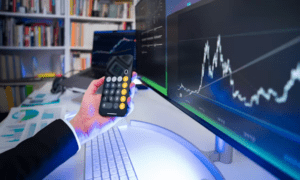The foreign exchange (Forex) market, with its allure of high returns, has attracted millions of traders worldwide. However, its popularity has also given rise to a myriad of scam brokers looking to exploit unsuspecting traders. This article delves into the telltale signs of scam brokers and offers guidance on how to steer clear of them.
Recognizing Red Flags
Too Good to Be True Offers
Scam brokers often lure traders with promises of unrealistically high returns, bonuses, or guaranteed profits. Remember, in the world of trading, if something sounds too good to be true, it probably is.
Spotty Regulatory Compliance
Reputable brokers are regulated by recognized financial authorities. If a broker is not registered with or regulated by a known regulatory body, it’s a significant red flag, tread carefully.
The Role of Regulators in Forex Trading
Ensuring Fair Trading Practices
Regulatory bodies set and enforce standards that brokers must adhere to, ensuring they operate transparently and fairly.
Protecting Traders
Regulators work to protect traders from fraudulent practices, ensuring that brokers maintain segregated accounts, offer fair pricing, and provide a secure trading environment.
Handling Disputes
In case of disputes between traders and brokers, regulatory bodies can intervene, offering conflict resolution and ensuring traders’ rights are upheld.
Prominent Regulatory Bodies in Forex Trading
Financial Conduct Authority (FCA) – UK
The FCA is one of the most respected regulatory bodies globally. It mandates brokers to hold trader funds in segregated accounts and offers compensation schemes for traders if a broker becomes insolvent.
Australian Securities and Investments Commission (ASIC) – Australia
ASIC ensures that brokers operate transparently, providing traders with accurate information and ensuring they adhere to fair trading practices.
Commodity Futures Trading Commission (CFTC) and National Futures Association (NFA) – USA
These US-based regulatory bodies have stringent requirements for brokers, ensuring high levels of transparency and fairness in the Forex market.
Cyprus Securities and Exchange Commission (CySEC) – Cyprus
CySEC is a leading regulator in the European region, ensuring compliance with EU financial regulations and offering protection to traders against scam brokers.
The Importance of Due Diligence
Researching Broker History
Before committing funds, research the broker’s track record. A simple online search can reveal complaints, reviews, and potential legal issues associated with the broker.
Verifying Regulatory Affiliations
Always verify a broker’s claimed regulatory affiliations by checking the official website of the regulatory body. Scam brokers might falsely claim to be regulated or use the name of a legitimate broker.
Understanding the Broker’s Business Model
Transparent Fee Structures
Legitimate brokers have clear and transparent fee structures. If a broker is evasive about their fees, commissions, or spreads, it’s a cause for concern.
Clear Withdrawal Procedures
Scam brokers often make withdrawals cumbersome or impose unjustified fees. Ensure that the broker has a straightforward withdrawal process without hidden charges.
Evaluating Trading Platforms
Platform Reliability and Features
A broker’s trading platform should be reliable, user-friendly, and offer essential tools for analysis. If the platform frequently crashes, has significant lags, or lacks basic features, it might indicate the broker’s lack of investment in providing quality service.
Unusual Price Spikes
Scam brokers might manipulate their trading platforms to create artificial price spikes that can trigger stop losses. Monitor for unusual price movements that don’t align with the broader market.
Communication and Customer Service
Accessibility and Responsiveness
A reputable broker prioritizes customer service. If a broker is consistently hard to reach, unresponsive, or evasive in their answers, consider it a warning sign.
Educational Resources
Legitimate brokers often provide educational resources to help traders. While this isn’t a definitive sign of legitimacy, the absence of any educational content or the presence of misleading information can be indicative of a scam broker.
Protecting Yourself from Scams
Start with a Demo Account
Before depositing real money, test the broker’s platform and services using a demo account. This allows you to gauge the broker’s reliability without risking real funds.
Avoid Giving Out Personal Information
Be cautious about sharing personal or financial information. Scam brokers might sell your information or use it for malicious purposes.
Regularly Monitor Your Account
Regularly review your account statements and trading history. If you notice unauthorized transactions or discrepancies, raise the issue with the broker immediately.
Seeking External Opinions
Engage with Online Trading Communities
Online trading forums and communities can be valuable resources. Engaging with other traders can provide insights into a broker’s reputation and practices.
Check Third-party Review Sites
Websites that specialize in broker reviews can offer ratings, user feedback, and detailed analyses. However, be wary of fake reviews, both positive and negative, and look for consistent patterns in feedback.
Conclusion
In the vast landscape of Forex trading, while there are numerous legitimate brokers dedicated to ensuring a fair trading environment, scam brokers lurk in the shadows, ready to exploit the unwary. By being vigilant, conducting thorough research, and recognizing the red flags, traders can navigate the Forex market confidently, minimizing the risk of falling prey to scams. Remember, informed caution is your best defense in the world of trading.



































